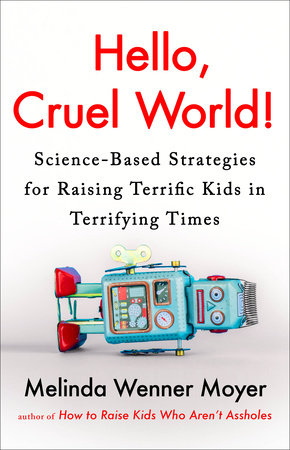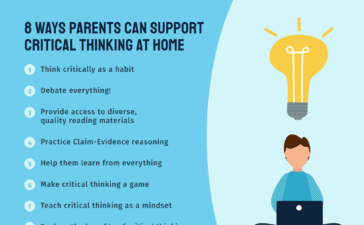When Devon B. was in the fourth grade, the elementary school she attended in Chatham, NJ, noted the wintry conditions about to develop and announced an early dismissal. It was noon and snowflakes had begun to fall, prompting the school to call Devon’s mother. Could she come and pick up her child? It’s OK for Devon to walk, the mother said; home was just half a mile from school. As Devon trudged through the snow, her mother received a handful of calls from concerned parents. Should she be walking alone in this weather?
“In situations like this when there is such a small likelihood of danger, it is so much better for a child to be given that independence,” said Melinda Wenner Moyer, a journalist and author of “Hello, Cruel World! Science-Based Strategies for Raising Terrific Kids in Terrifying Times. “These are the opportunities we need to give kids to build confidence and resilience,” she added. Inviting children to take healthy risks is just one bit of counsel Moyer offers parents. To prepare kids for an uncertain future, parents should help their offspring learn how to cope, connect with others and cultivate important competencies. Hello, Cruel World! relies on research to explain why children need these skills and offers direction to parents on how best to promote them.
Kids are better able to cope when they learn how to be kind to themselves; self-compassion translates into less anxiety, stress and depression — and more kindness towards others. Resilience, the ability to handle adversity and keep going after failure or disappointment, is also crucial for children. And understanding the need for rest and recovery keeps kids from accepting a permanent state of stress, which erodes well-being. Developing these resources will offer some protection over time against drug abuse and addiction, scourges that afflict those who lack coping skills.
 What can parents do? Give kids the vocabulary to discuss their feelings and make clear that being sad or upset is not an abnormality but a part of life, Moyer advises. Back off the performance pressure and normalize failure by sharing your own struggles. Avoid jumping in at every sign of distress, as children interpret such interventions as a sign of their own incompetence. Also, get away from hovering over and tracking your kids, as excessive parental involvement shrinks kids’ motivation and undermines school performance. And resist the false notion that danger lurks at every turn by permitting your child to take reasonable risks—and allowing him to squirm. Along the way, model the behavior you’re promoting: demonstrate self-compassion, use substances responsibly and don’t apologize for taking a break. Moyer offers much more in the way of research-backed advice on boosting children’s coping abilities.
What can parents do? Give kids the vocabulary to discuss their feelings and make clear that being sad or upset is not an abnormality but a part of life, Moyer advises. Back off the performance pressure and normalize failure by sharing your own struggles. Avoid jumping in at every sign of distress, as children interpret such interventions as a sign of their own incompetence. Also, get away from hovering over and tracking your kids, as excessive parental involvement shrinks kids’ motivation and undermines school performance. And resist the false notion that danger lurks at every turn by permitting your child to take reasonable risks—and allowing him to squirm. Along the way, model the behavior you’re promoting: demonstrate self-compassion, use substances responsibly and don’t apologize for taking a break. Moyer offers much more in the way of research-backed advice on boosting children’s coping abilities.
Learning how to connect with others is essential, especially as American society fractures and online activities supplant in-person interactions. Kids need help building compassion and empathy for others and skills in establishing stable relationships, as well as a healthy curiosity.
You Might Also Like
8 Ways Parents Can Support Critical Thinking At Home
contributed by Lee Caroll, PhD and updated by TeachThought Staff Research agrees that the strongest students emerge from homes supportive in the...
How Educators Can Prepare Students for Careers in Medical Imaging
contributed by Beth Rush When students say they want to work in health care, they often default to roles they...
A Look Back at the Early Years of AI in Schools with MIT’s TeachLab
Today we’ve got a special episode to share with you. It’s from our friends at Teach Lab, a podcast about...
Teachers Are Using Software To See If Students Used AI. What Happens When It’s Wrong?
The teacher didn’t respond, and docked Ostovitz’s grade. Ostovitz’s mom, Stephanie Rizk, says her daughter is a high-achieving student who...










